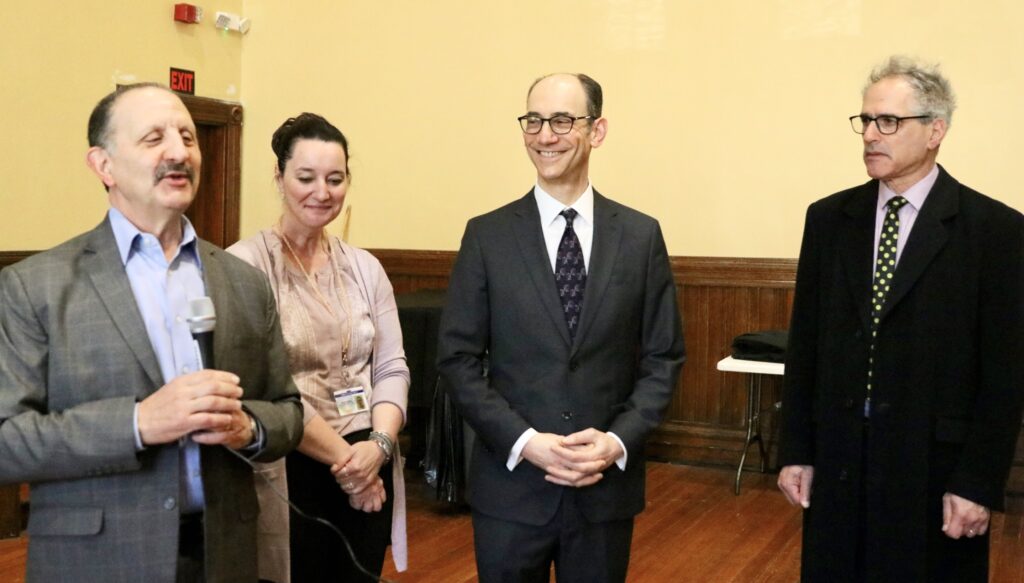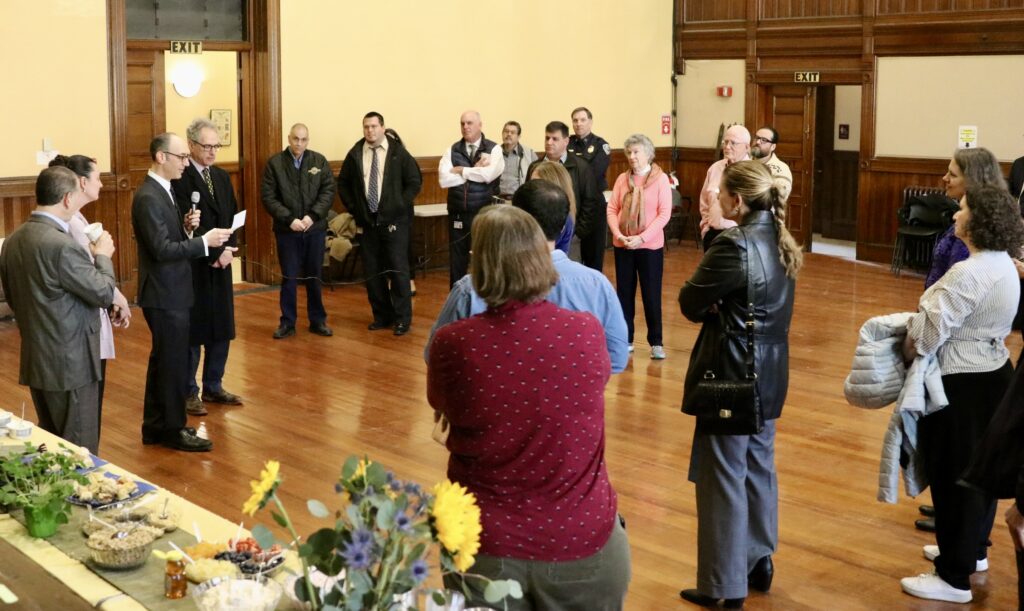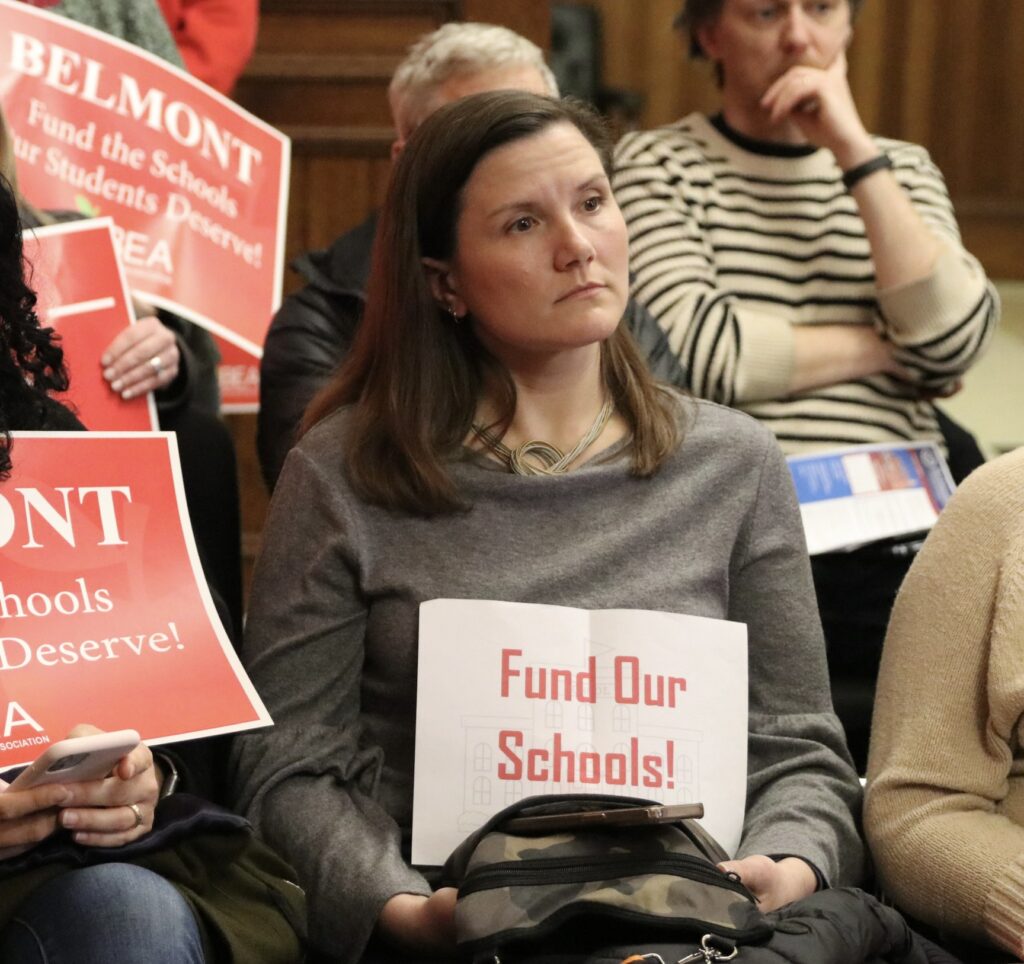Photo:
Facing the task of closing a $2.1 million gap facing the proposed Municipal Skating Rink, Belmont Town Administrator Patrice Garvin was staring at a quandry.
Two weeks before the Special Town Meeting when a rescue package would be presented to the members, Garvin had two sources to make up the deficit, a $750,000 state earmark thanks to State Sen. Will Brownsberger, and a town account created from a fire insurance settlement when the Kendal Arts Center burned to the ground more than two decades ago.
But the possibility using a huge chunk of the Kendal’s $2.5 million would be problematic, according to Garvin. While the rink qualifies to use the account as a captial project, several town committees and members note the Kendall School Insurance Fund is an important element in supporting future major town developments as it will help finance the project’s planning and design stage.
“It really hurt coming up with the budget,” said Garvin. “[An answer] didn’t occur to me until we were really trying not to raid the Kendal [Fund].”
And the solution came from Wall Street. Garvin reviewed the town’s financials and saw the town’s investment income account had an impressive showing. As recently as the posted third-quarter results on the Finance Department website, investment income stood at $1.5 million with an expected $200,000 monthly increase over the final three months, according to the town’s Financial Director Jennifer Hewitt. What better time to benefit from the revenue windfall attributable to the bonds the town issued last fall to save the rink and not drain the Kendal fund.
“As soon as I thought about it, I said, ‘Why didn’t I think of that before,” said Garvin. “Sometimes you just need to look at it differently,” she said, as the town firmed up the supplemental budget package it will present at Monday’s Special Town Meeting, June 10.
The $2.25 million supplement funds package will be comprised of:
- $950,000 allocated from the Kendal Fund,
- $750,000 state earmark shepherd by State Sen. Will Brownsberger to pay for a state-of-the-art
CO2 refrigeration system, and, - $550,000 from the town’s 2024 Investment income account.
Best of all, according to Select Board Chair Roy Epstein, the package will not increase residential property taxes as did the $29.9 million 2023 debt exclusion, while the Kendal Fund will have $1.15 million remaining in its account.
Epstein noted the package will fill the entire shortfall while adding a small $150,000 contingency “to give a small safety margin for the project.”
The reason for the warrant article in the first place was to respond to the request by the Municipal
Skating Rink Building Committee for an additional $2.1 million for the project. The rink’s $29.9 million pricetag approved by voters in April 2023, ballooned to $35.2 million by February 2024 due to cost inflation and . After completing a round of value engineering, the rink remained in arrears by $2.1 million, requiring the building community to approach the Select Board and town to find a solution.
Monday’s meeting will include segments explaining the cause of the shortfall and the finance package.
A potential fly in the ointment facing the rink Monday is the stripping of solar panel arrays that is expected to raise the hackles from the town’s Energy Committee and a large number of “green” Town Meeeting supporters.
While “recogniz[ing] the disappointment that PV panels are not in the current scope,” Epstein noted the “building will be fully PV ready and we are actively pursuing other avenues to fund this last piece.”


